Joint statement for an ambitious FuelEU Maritime Regulation
The European maritime industry is undoubtedly one of the most important sectors for Europe's connectivity and prosperity. Like many other industries, it finds itself at the forefront of the energy transition, endorsed by the “Fit for 55” Package. In shipping, the main challenge is to replace fossil fuels with climate-friendly alternatives, notably in the form of green hydrogen-based fuels (e- fuels/RFNBOs).
The FuelEU Maritime Regulation will be crucial for setting the course for the future development of the maritime industry. To achieve the necessary goal of decarbonising shipping, it must proactively and consistently set the incentives and a sufficient level of ambition.
The 47 signatories of this letter, representing the entire value chain of green fuels including suppliers, users and maritime technology enablers, want to express their support for the ongoing FuelEU Maritime trilogue to set such a proactive, ambitious regulation.
We call on the negotiators to
- Immediately introduce both stronger GHG intensity limits and promote the use of e-fuels through a multiplier: Ambitious GHG targets, which have been adopted by the Parliament and supported by several Member States,1 as well as the proposed multiplier are important and necessary steps to support first-movers and incentivise the switch to e-fuels. However, as compliance with the proposed GHG targets is possible using fossil fuels2 in short-term, there is a need for a clear demand signal in terms of a sub-quota;
- Maintain the proposed binding 2 % sub-quota for renewable fuels of non-biological origin (RFNBOs): A dedicated binding sub-quota for the maritime supply and demand is indispensable to give e-fuel producers and shipping companies investment and planning security and achieve a swift market ramp up of e-fuels. A demand sub-quota under the FuelEU Maritime Regulation and an equivalent maritime supply sub-quota under the revised Renewable Energy Directive for RFNBOs would drive industrial production and thus enable economically efficient prices, which are necessary to pave the sector's way to climate neutrality in the long run;
- Apply the sub-quota to all shipping companies: An exemption for small companies and subsidiaries is counterproductive. Large as well as small shipping companies must pull in the same direction without exemptions. The pooling system is a well-proven mechanism to help smaller companies comply, but should be simplified and made more flexible and easier to access for any company e.g., by building on the FuelEU electronic compliance database;
- Reward investments in net-zero emission vessels: We support the Parliament’s proposal to allow companies that own ships outside the scope of the Regulation to bank their compliance surplus, on a voluntary basis, when fully powered by renewable energy, including wind propulsion. This would boost investments in small ships under 5000 GT, e.g., offshore service vessels and others, ensuring these are not left behind in the EU’s effort to decarbonise shipping;
- Financially support the fuel and technological transition: Similarly, to the use of the revenues from the inclusion of shipping into the EU ETS, the revenues from penalties for non-compliance under FuelEU Maritime should be dedicated to the decarbonisation of the shipping sector.
The FuelEU Maritime Regulation has the potential to set the necessary regulatory preconditions for the decarbonisation of the shipping sector. The signatories call on the co-legislators to fully seize this opportunity to make the European industry a global leader in green shipping by raising the ambitions of the GHG intensity limits and promoting the uptake of green, sustainable e-fuels via a dedicated binding sub-quota. This should go hand in hand with matching targets on fuel suppliers and ports to ensure the availability of green e-fuels.
The signatories
Associations:
Danish Shipping (Danish Shipowners’s Association), Brintbranchen (Hydrogen Denmark), eFuel Alliance, Global Alliance Powerfuels, Hydrogen Europe, Maritime Plattform, Methanol Institute, MEW Mittelständische Energiewirtschaft Deutschland e.V., Renewable Hydrogen Coalition, SEA Europe, Vätgas Sverige (Hydrogen Sweden), WaterstofNet (Hydrogen Flanders and Netherlands), 2030- sekretariatet.
Companies:
Alba Emission Free Energy S.A., Alcogroup SA, Amon Maritime, Amon Offshore, AustriaEnergy, Azane Fuel Solutions, Blue World Technologies, Copenhagen Infrastructure Partners, DFDS, Elyse Energy, Energy Observer, Europe Technologies CIAM, Helion Hydrogen Power by Alstom, HIF, HØST PtX Esbjerg, Hycamite, Hydrogenious LOHC Technologies, Hy24, Ineratec, Infinium Operations, Liquid Wind, LMG Marin France, MGH Energy, Nordic Electrofuel, OBRIST Technologies GmbH, PM Motor Fuel Cell GmbH, Port of Roenne, Siemens Energy AG, St1, Topsoe, Ula Ship Management, Viridis Bulk Carriers, Walter Tosto, Yara International.
1 Joint statement by Belgium, Denmark, Germany, Ireland, Luxemburg, the Netherlands and Sweden on FuelEU Maritime
2 Transport & Environment. (2022). FuelEU Maritime: T&E analysis and recommendations. How to drive the uptake of sustainable fuels in shipping; and CE Delft. (2021). FuelEU Maritime and EU ETS: Sound incentives for the fuel choice?

